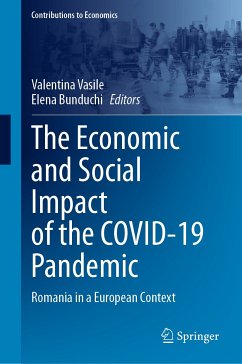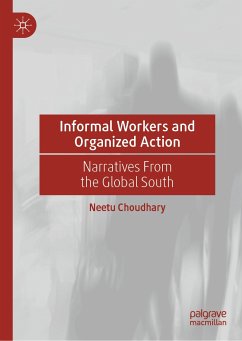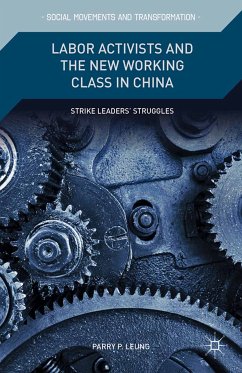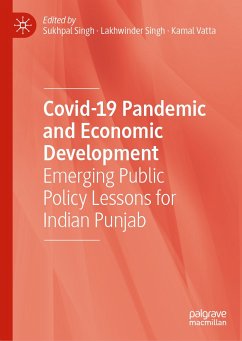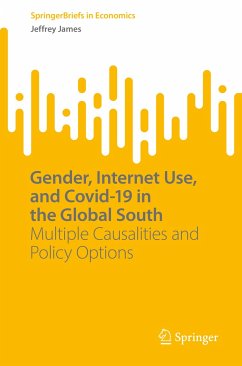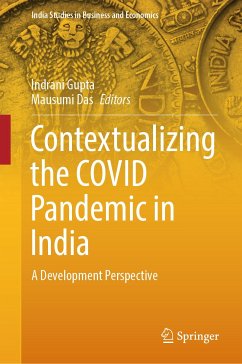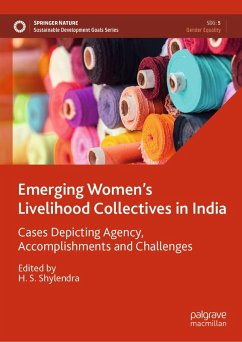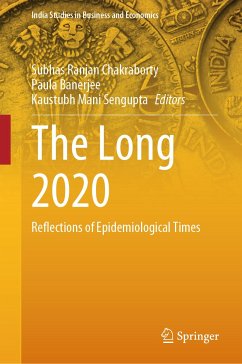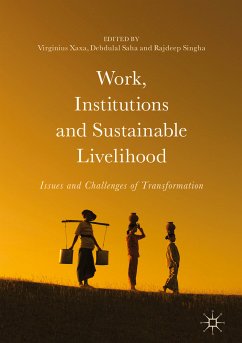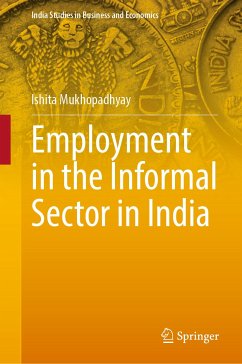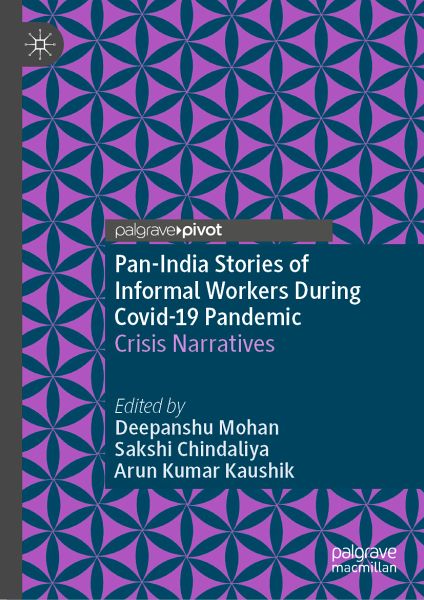
Pan-India Stories of Informal Workers During Covid-19 Pandemic (eBook, PDF)
Crisis Narratives
Redaktion: Mohan, Deepanshu; Kaushik, Arun Kumar; Chindaliya, Sakshi
Versandkostenfrei!
Sofort per Download lieferbar
36,95 €
inkl. MwSt.
Weitere Ausgaben:

PAYBACK Punkte
18 °P sammeln!
This book aims to delve into the application of feminist ethnography by engaging with the lived experiences of vulnerable workers, occupied by India's informal workforce, across its deeply stratified labour-market landscape.Set up and organized in a diverse spatial trajectory through identified case studies from across India, the book, in a post pandemic context, aims to study, critically reflect on the vulnerable state of India's workforce, capturing the daily emergencies, livelihood of marginalized communities. Case studies in the book feature the pandemic-crisis narratives of farmers, fishe...
This book aims to delve into the application of feminist ethnography by engaging with the lived experiences of vulnerable workers, occupied by India's informal workforce, across its deeply stratified labour-market landscape.
Set up and organized in a diverse spatial trajectory through identified case studies from across India, the book, in a post pandemic context, aims to study, critically reflect on the vulnerable state of India's workforce, capturing the daily emergencies, livelihood of marginalized communities. Case studies in the book feature the pandemic-crisis narratives of farmers, fisherfolk, factory workers, artisans, small scale entertainment providers, sanitation, and waste workers, to name a few.
By understanding the intersectional dimensions of social structures like caste, gender, and class our case studies in the book also attempt to unpack the 'dualities' present in the contemporary understanding of India's labour market. Reflective discussions with field ethnographers through first-person narratives help documenting their own observations from different case studies, while focusing on interactions on how to work through power dynamics and varied positionalities across dynamic field sites marked with different spatial characteristics.
The text is primarily aimed at students and peer scholars of development studies, or for those who interested in learning about the application of ethnographic methods to studying/understanding the governing dynamics of informality across India and South Asia.
Set up and organized in a diverse spatial trajectory through identified case studies from across India, the book, in a post pandemic context, aims to study, critically reflect on the vulnerable state of India's workforce, capturing the daily emergencies, livelihood of marginalized communities. Case studies in the book feature the pandemic-crisis narratives of farmers, fisherfolk, factory workers, artisans, small scale entertainment providers, sanitation, and waste workers, to name a few.
By understanding the intersectional dimensions of social structures like caste, gender, and class our case studies in the book also attempt to unpack the 'dualities' present in the contemporary understanding of India's labour market. Reflective discussions with field ethnographers through first-person narratives help documenting their own observations from different case studies, while focusing on interactions on how to work through power dynamics and varied positionalities across dynamic field sites marked with different spatial characteristics.
The text is primarily aimed at students and peer scholars of development studies, or for those who interested in learning about the application of ethnographic methods to studying/understanding the governing dynamics of informality across India and South Asia.
Dieser Download kann aus rechtlichen Gründen nur mit Rechnungsadresse in A, B, BG, CY, CZ, D, DK, EW, E, FIN, F, GR, HR, H, IRL, I, LT, L, LR, M, NL, PL, P, R, S, SLO, SK ausgeliefert werden.



